Heorhiy Gongadze and all murdered journalists commemorated in Kyiv
September 16 marked the 23rd anniversary of the abduction and murder of Ukrainian journalist Heorhiy Gongadze. Human rights activists, media organizations and colleagues traditionally honored the memory of Heorhiy, as well as all the murdered journalists, near Gongadze’s grave in Podil, Kyiv city.
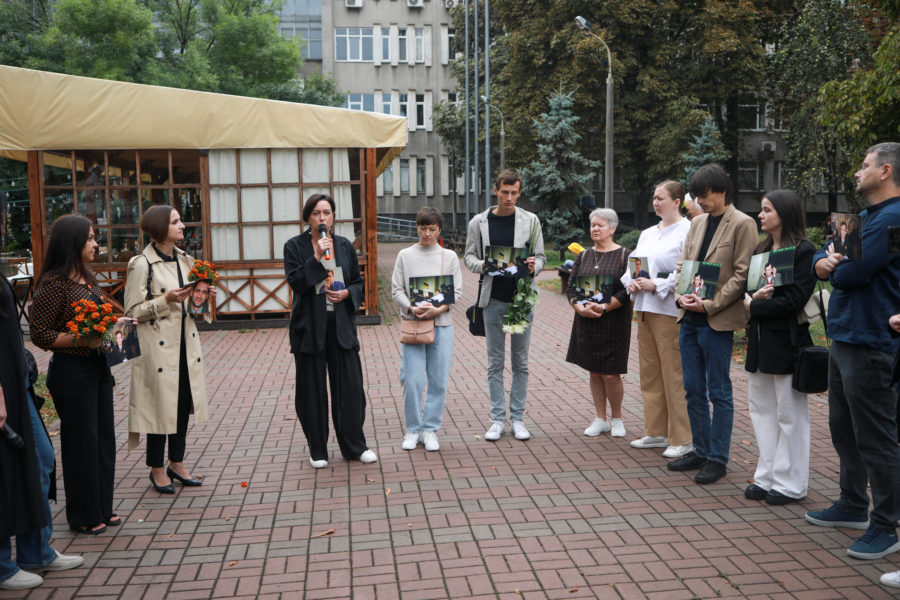
“Ukrainian civil society began to be born in the protest action ‘Ukraine without Kuchma’ which was a reaction to the murder of Heorhiy Gongadze. Two Ukrainian Maidan protests grew out of that action in the early 2000s: the Orange Revolution and the Revolution of Dignity. The story of the life and tragic death of Heorhiy Gongadze teaches us all an important lesson. Freedom of speech is suppressed gradually and imperceptibly, ‘bitten off’ in small pieces and regained with great sacrifices, sometimes at the cost of life. That’s why we can’t give up the freedom of speech, tolerate political censorship or self-censorship, no matter what smoke of war they hide behind,” said Myroslava Barchuk, journalist, TV presenter, winner of 2021 Gongadze Prize.
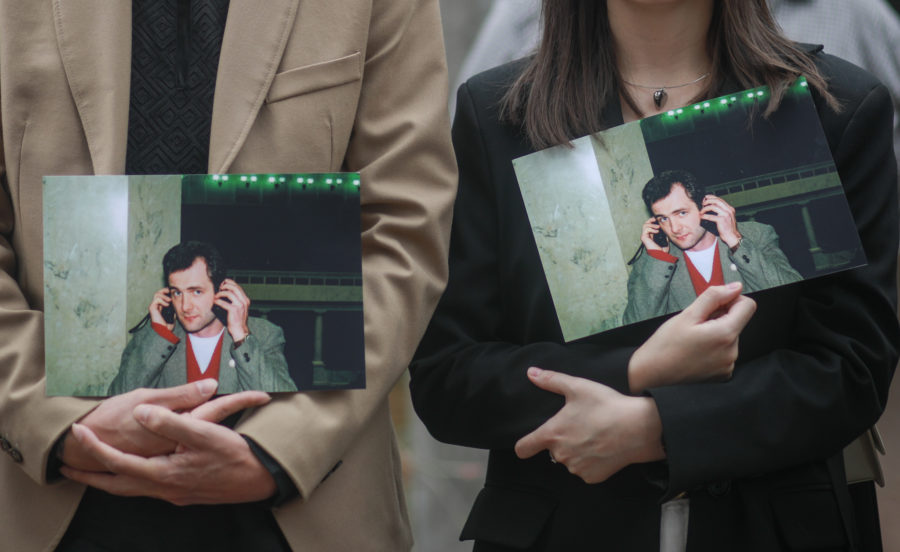
At the same time, an updated photo exhibition The War Is Not Over Yet about Russia’s crimes against the media and journalists in Ukraine after February 24, 2022, opened in Illinsky Square. In Kyiv, it will last until October 8. The exhibition has been touring Ukrainian cities for over a year, it was presented in Kyiv, Kharkiv, Ternopil, Poltava, Boyarka, Vinnytsia and Odesa.
“Since the beginning of the Russian full-scale invasion of Ukraine, 66 media workers have been killed, 10 of them while performing their professional duties. These are significant losses for Ukraine over the past year and a half. These are people who fought for the truth, risking their own lives. Some covered the most tragic events in Ukraine’s contemporary history, others changed their workplace to weapons and defended us at the front. For Russia, journalists have always been a target to close their mouths and deprive of the opportunity to tell the world about Russian crimes,” said Kateryna Diachuk, an expert on monitoring freedom of speech at the Institute of Mass Information.
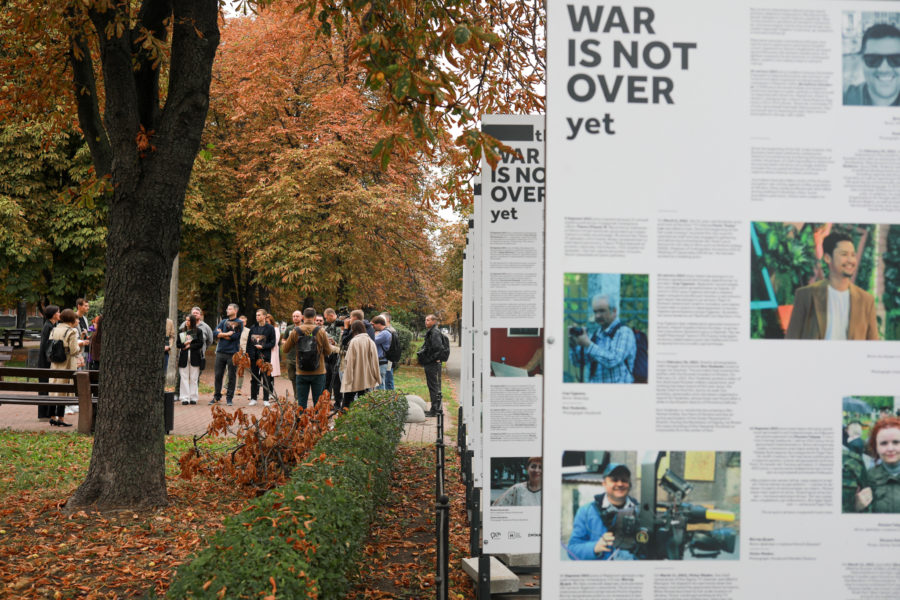
“The Russians took away the right to a profession from our journalists, because dozens of colleagues have gone to war precisely as soldiers since the beginning of the full-scale invasion. Those who remain in the profession and continue to talk about our war are taking a great risk. Because the Russians do not wage a conventional war. They don’t care about blue body armor and cameras. For them, journalists are the same target as the military,” said journalist, photographer and fixer Stas Kozliuk.
At the same time, the action participants mentioned the imprisoned Crimean journalists, who paid for the right to tell what is happening on the occupied peninsula with their freedom.
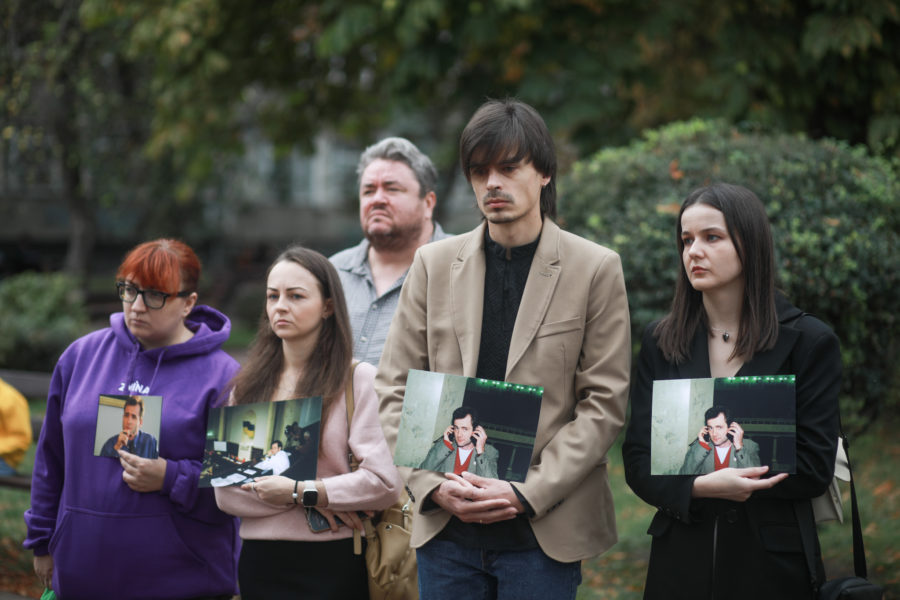
“Fifteen Crimean journalists, twelve of whom are Crimean Tatars, remain in prisons in the territory of Russia and Crimea occupied by it. To silence them, the aggressor state resorted to politically motivated prosecution, fabricating cases against journalists accusing them of terrorism, sabotage, and possession of explosives. It is important not to give up and seek their release, primarily the release of those journalists who have serious health problems (Iryna Danylovych, Amet Suleymanov) – they may simply not live to be released,” said Tetiana Pechonchyk, head of the board of Human Rights Centre ZMINA.
“Since the murder of Gongadze, new generations have entered Ukrainian journalism, for whom Heorhiy is a man from history textbooks. But it is very important to emphasize that for all of us, this is not only a commemoration of our murdered colleague, it is an event, in general, that combines the memory of the dead, solidarity with colleagues persecuted or imprisoned by the occupiers, and the desire for justice – both in the still unsolved case of Heorhiy and in the cases of all our colleagues killed because of the genocidal Russian war against our country,” emphasized Tetiana Teren, executive director of PEN Ukraine.
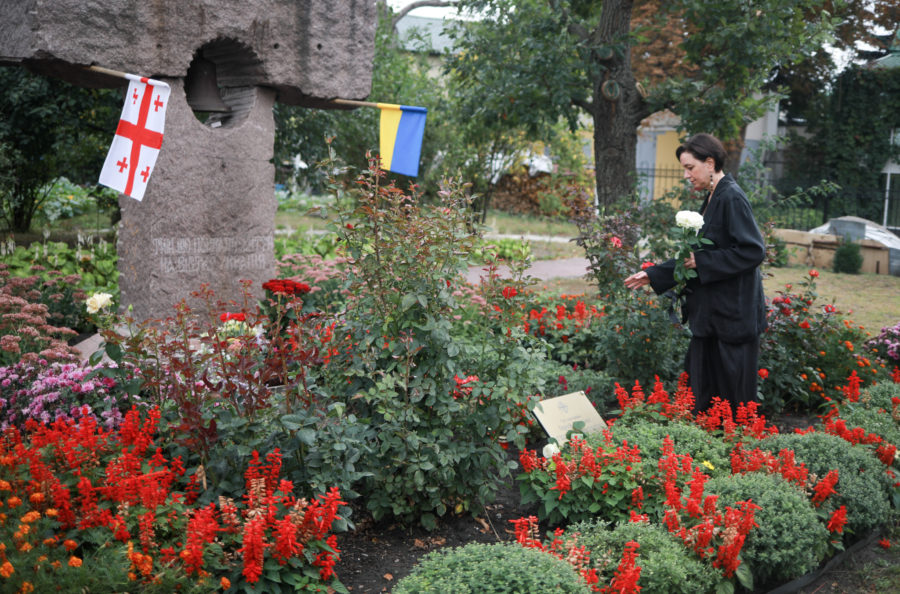
The action in memory of Heorhiy Gongadze and all murdered Ukrainian journalists was organized by the Gongadze Prize, PEN Ukraine, ZMINA and the Institute of Mass Information. They, together with the National Museum of the Revolution of Dignity, are co-organizers of The War Is Not Over Yet photo exhibition.
Watch the video from the event.
Photo credit: Oleksandr Khomenko
If you have found a spelling error, please, notify us by selecting that text and pressing Ctrl+Enter.















